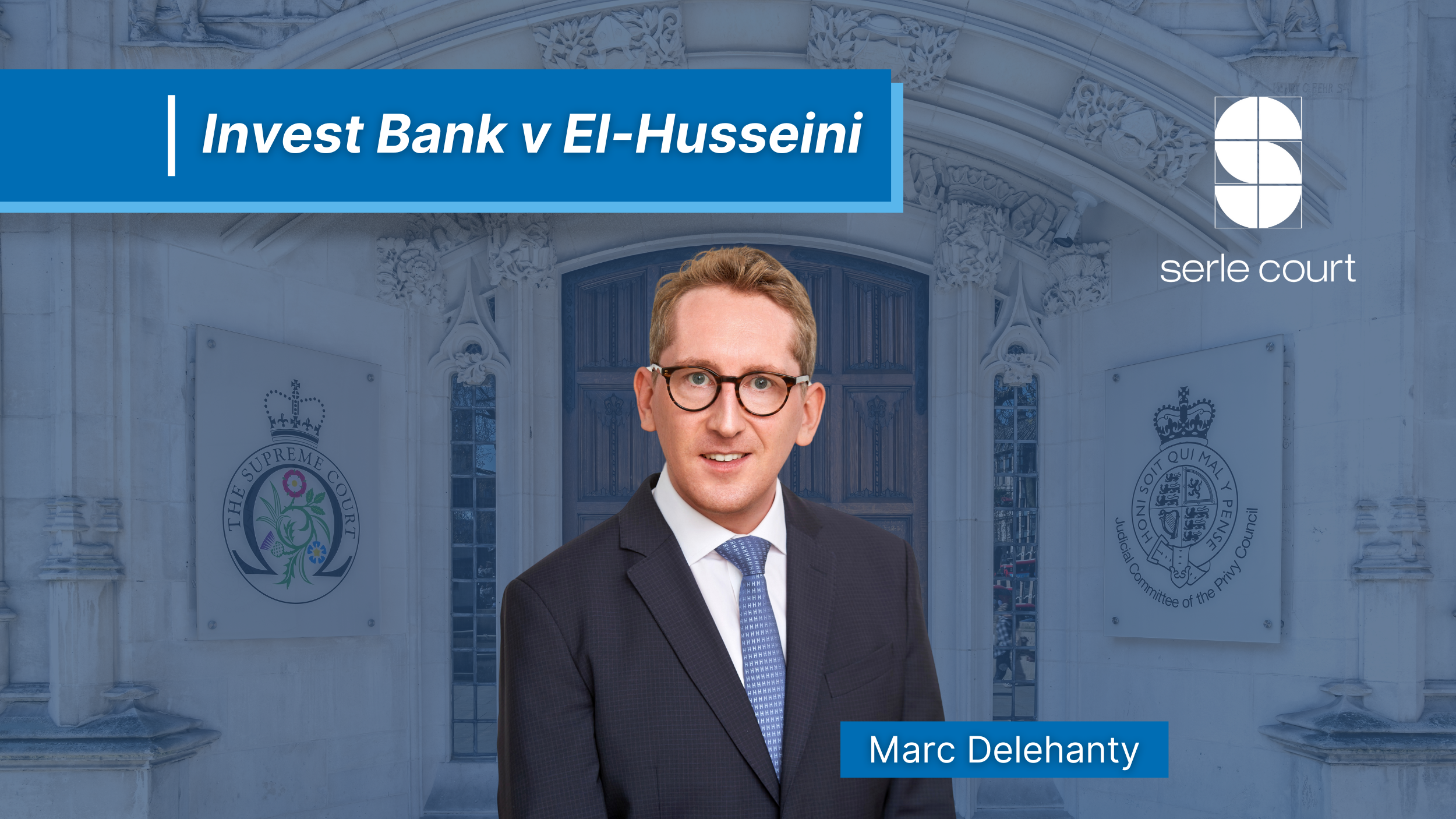Marc Delehanty appeared for successful respondent in landmark Supreme Court judgment on s.423, Insolvency Act 1986
By a judgment handed down on 19 February 2025, the UK Supreme Court dismissed the appeal in the Invest Bank v El-Husseini litigation concerning the scope of section 423 of the Insolvency Act 1986.
Marc Delehanty represented the successful respondent bank, undertaking a significant portion of the oral advocacy before the Supreme Court. He was led by Paul McGrath KC (of Essex Court chambers) and instructed by the team at PCB Byrne LLP: Trevor Mascarenhas, Tom Crisp, David Johnson, Eamon Khorsheed and Emily Hynes.
The Supreme Court resolved what it described as an “important” point on the interpretation of s.423 – the tool available to creditors to seek reversal of transactions entered into by their debtors which put assets out of reach or otherwise prejudice the creditors. The Court rejected the contention of the appellants that s.423 was only available where a transaction involved the transfer of an asset beneficially owned by a debtor. It held that s.423 can be engaged where a debtor which owns a company procures that that company transfer away company assets. This is because, even though an asset beneficially owned by the debtor has not been transferred away, creditors would be prejudiced by effect of the transaction: the reduction in value of the company shares owned by the debtor (against which the creditors might enforce). On a proper interpretation of s.423 there was nothing in its wording to limit it so as to exclude such transactions.
The judgment upholds the Court of Appeal’s decision on this issue, but the Supreme Court’s reasoning sweeps much broader and so will be of great interest to civil fraud / asset recovery lawyers and, indeed, general insolvency lawyers and practitioners. In resolving the interpretation arguments, the Supreme Court:
- Reasoned that it could not see why the same wide interpretation for s.423 should not also apply to sections 339 and 238 of the Insolvency Act (which deal with challenges to transfers of assets in the period before individual bankruptcy and corporate insolvency, irrespective of whether there was an intention to defeat creditors).
- Clarified that a “transaction” need not involve a transfer of an asset and would cover other types of prejudicial action, such as a debtor releasing a debt or surrendering a lease.
- Provided guidance on how to evaluate the receipt and provision of “consideration” in multi-party transactions for the purposes of s.423 (which is related to but differs from the understanding of consideration in the contract law sense).
- Considered how the statutory bona fide purchaser defence for onward transferees of property, at s.425(2), may operate when a transferee receives property from a company owned by the debtor rather than directly from the debtor.
The judgment can be found here: El-Husseiny v Invest Bank [2025] UKSC 4.





